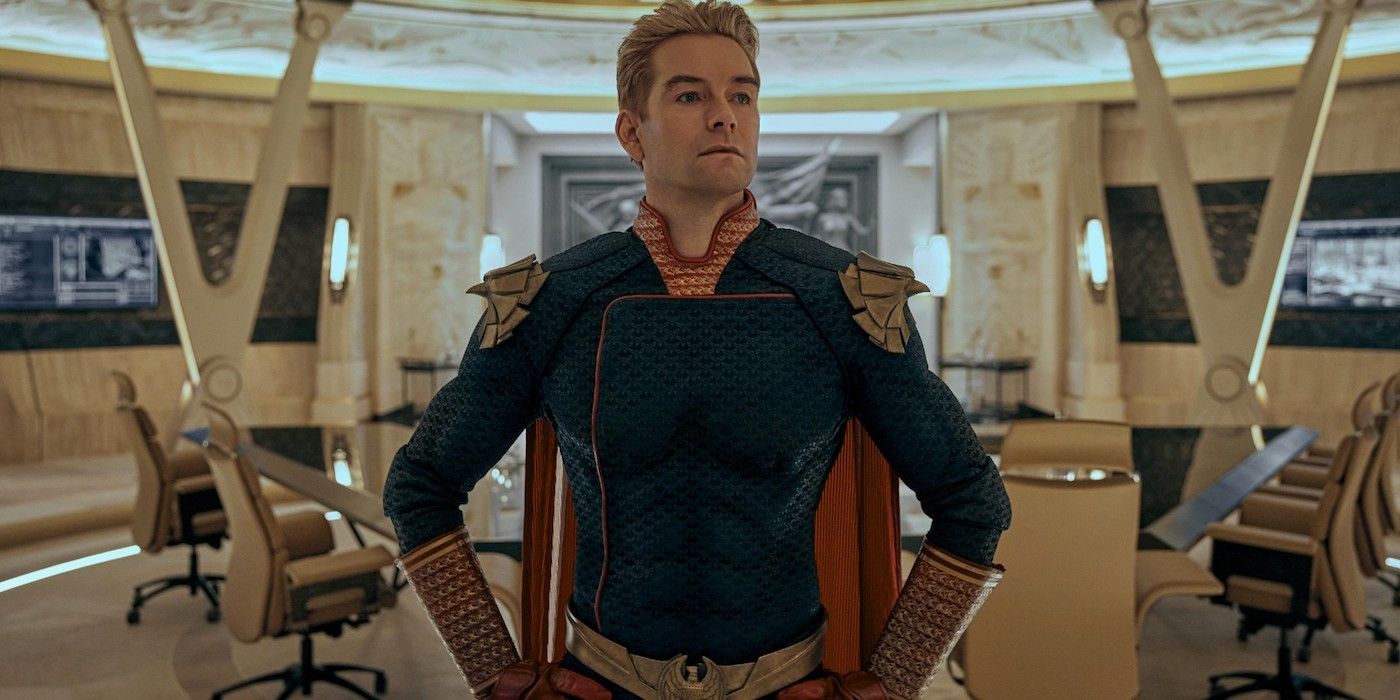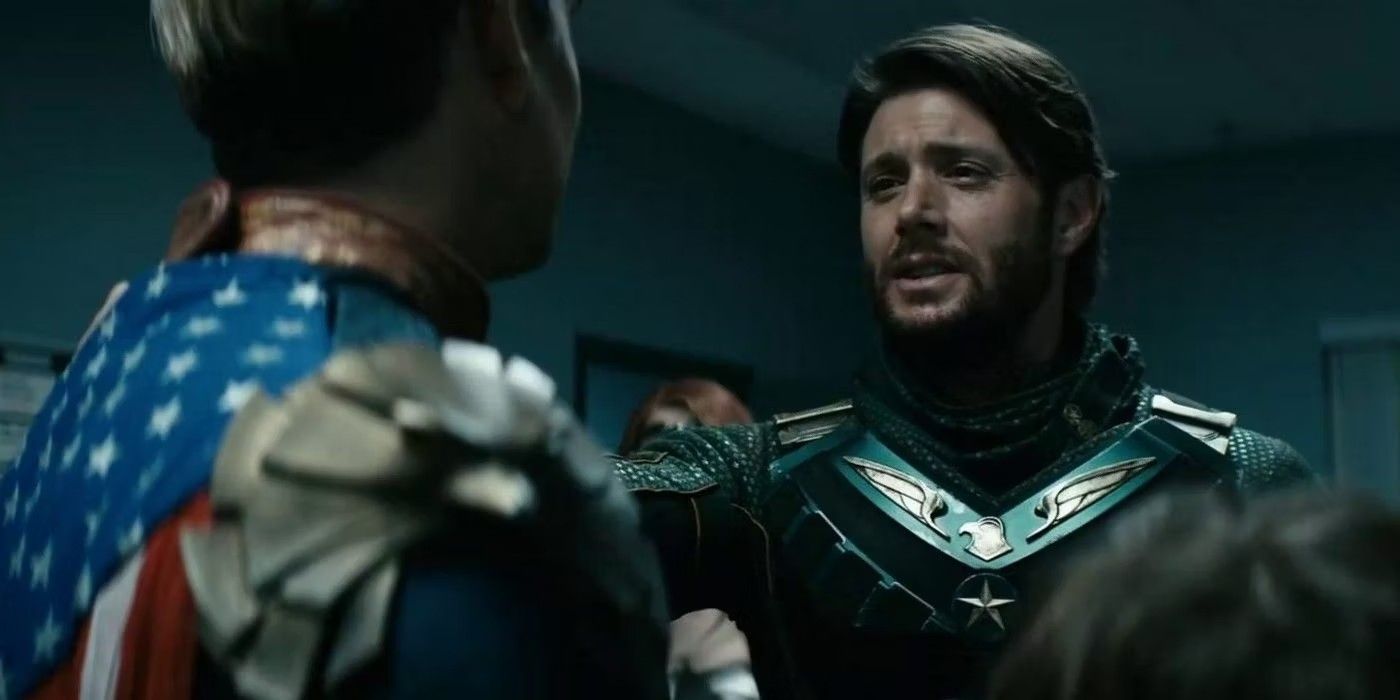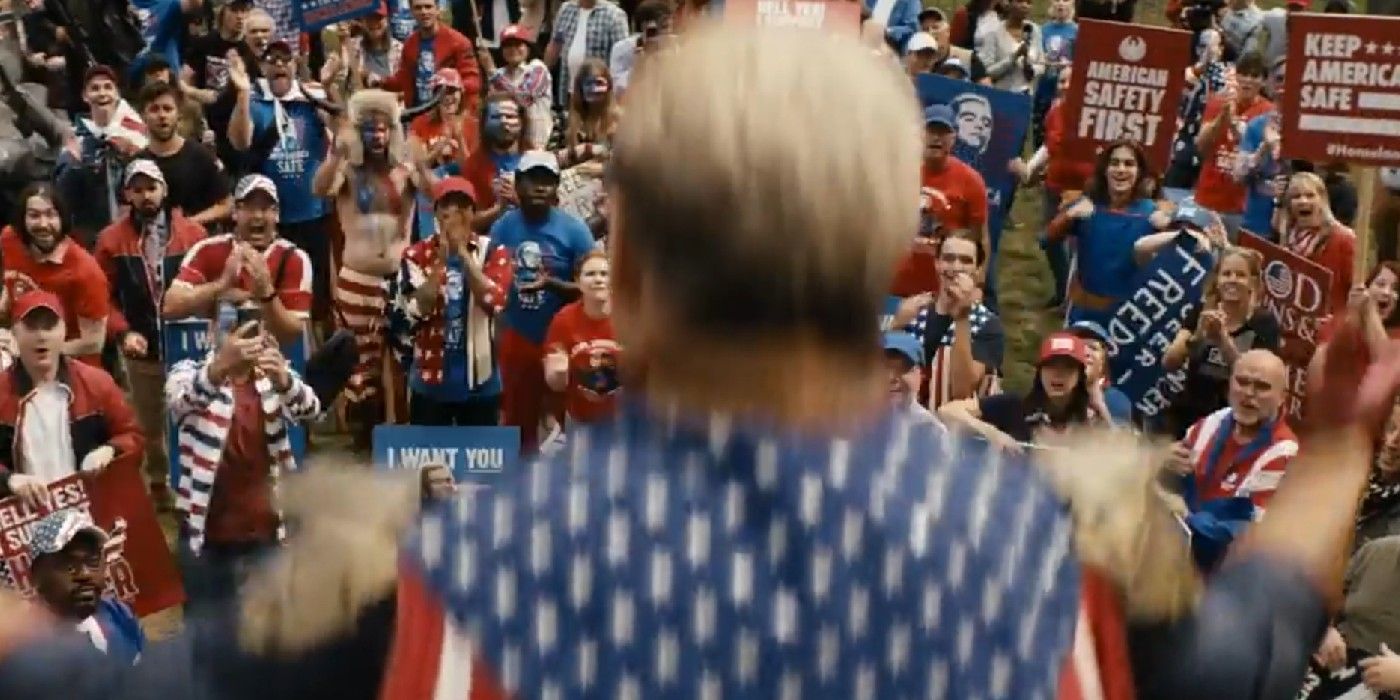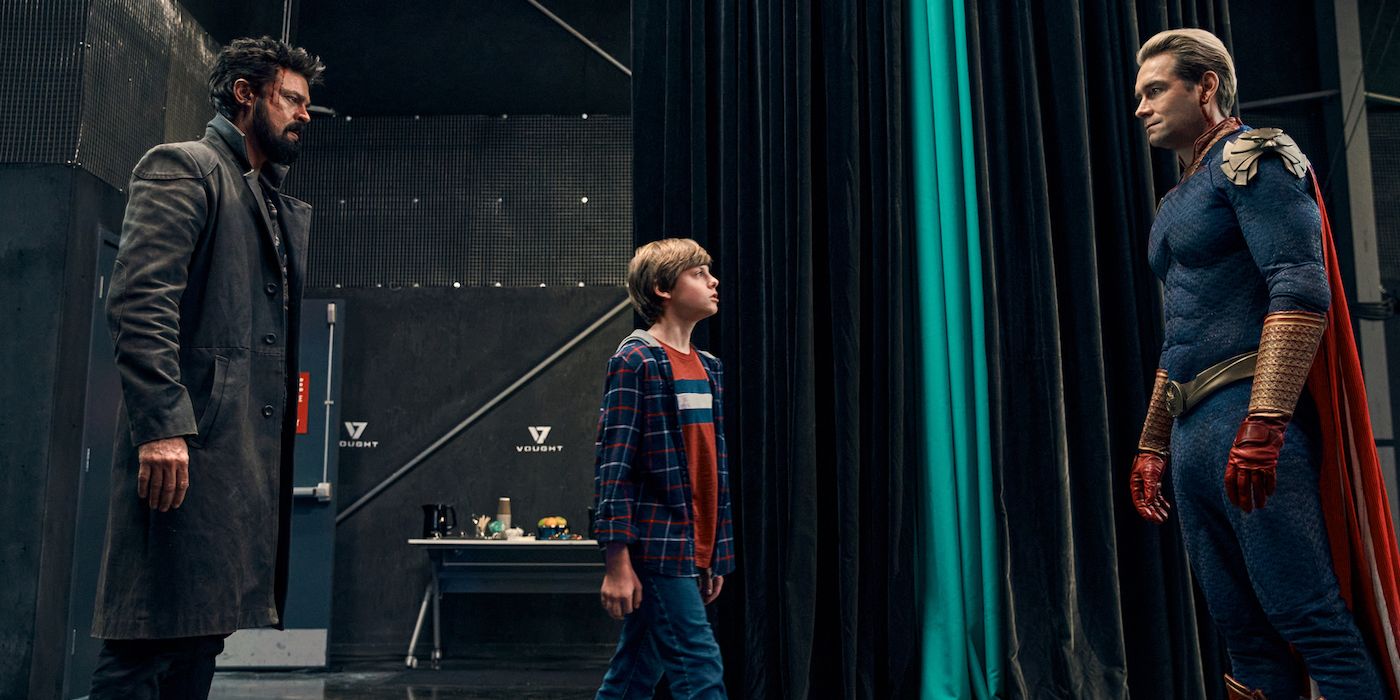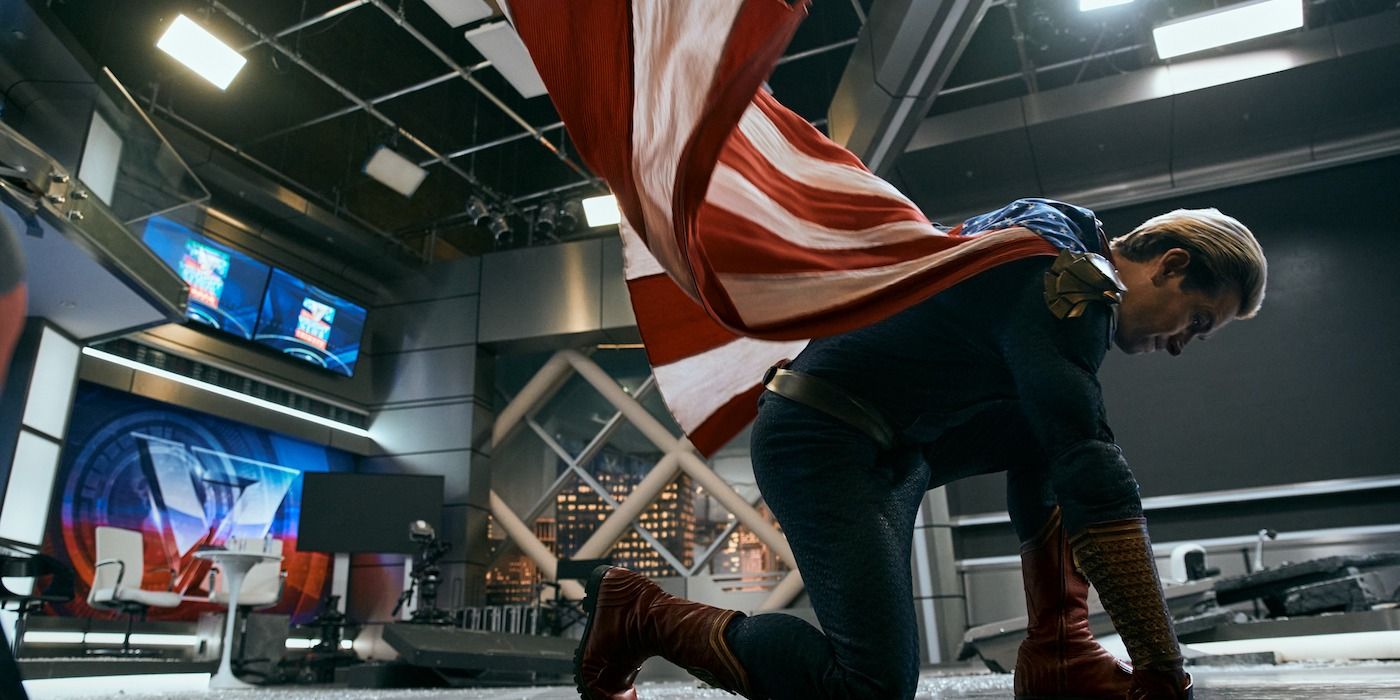The following contains spoilers for The Boys Season 3, Episode 8, "The Instant White-Hot Wild," streaming now on Prime Video.
Prime Video's The Boys wrapped up its third season with a decidedly less conclusive end than its previous outing. Much in the same way Season 1 ends with a jaw-dropping cliffhanger, Season 3 brings about a resolution for Butcher and the gang that feels something just short of satisfying. In an otherwise great hour of television, the Season 3 finale of The Boys ended on a note that was perplexing, premature and perhaps unnecessary altogether.
By the final credits of The Boys Season 3, Episode 8, "The Instant White-Hot Wild," much is left up in the air. The episode -- and the season, and the series as a whole for that matter -- had been leading up to what seemed to be a final confrontation between Butcher's forces and Homelander. After all, for the first time, they had Temp V, Soldier Boy and Queen Maeve on their side; if there was ever a chance to kill Homelander, this was it. Yet, through a series of frustrating but character-driven missteps, the battle goes sidewise, allowing Homelander to leave freely with Ryan Butcher. And for one moment, it seemed as though the show would finally give its fans some kind of closure on this battle. For one moment.
Homelander is almost unanimously regarded as the best aspect of The Boys. With complicated character work, excellent writing and dialogue, and an undeniably chilling performance from Antony Starr, it's understandable why many paint Homelander as single-handedly carrying the show. The uncomfortably obvious truth, however, is that the show no longer needs to rely on him -- and this reliance itself could lead to the show becoming stale.
The "moment" in question comes about as Ryan pleads with Homelander to take them both somewhere far away. In this scene, the show is presented with the perfect climax for this storyline; truly content to have a family, Homelander wins the day not because he was stronger, but because he looked out for Ryan -- reinforcing the major themes of relationships and obligations throughout the season. The undisputed victor, Homelander and Ryan could have flown off into the night -- never to be seen or heard from again (at least, until much later). At that moment, it seemed as though Homelander was going to give up The Seven for Ryan, which would have been an incredibly powerful end to his arc this season.
Understandably, many fans would take issue with this approach, seeing as they love both Homelander and Ryan and want the pair to remain central to the show's story. The trouble is, the show itself doesn't even seem to want this. With Maeve de-powered, Soldier Boy on ice and Temp V out of the question, the show has exhausted a surprising amount of options when it comes to dealing with Homelander conventionally. What's more, in the final scene, Butcher seems to have moved on to Victoria Neuman. The fact that Homelander returns in the stinger does little more than to show that Homelander is still basically the same character he's been for three seasons now. Yes, the world around him is changing; as Homelander viciously laser-beams a civilian, his sycophantic fans cheer -- even Ryan seems on the verge of a smile. But does this scene really do anything for Homelander's arc this season?
At surface level, Homelander's arc in Season 3 has been about him learning he can do no wrong -- this would be quite a superficial arc for the show's best-written character. In reality, his arc has been about him learning that by accepting his past and the person he is, he can achieve self-actualization. This perspective is what makes his scenes with Ryan in the finale so important; when Homelander absolves him at Mallory's estate, he's forgiving himself, too. It's this emotional vulnerability that allows him to reconnect with Ryan, and as a result, defeat Butcher in more ways than one.
Having him kill somebody in broad daylight accomplishes little more than obfuscating and possibly over-simplifying the only compelling, sympathetic aspect of Homelander to manufacture tension for the next season. If The Boys wants to sacrifice its uniquely complicated approach to supervillains, this is certainly the way to do it. In a perfect world, Butcher's fight to get Ryan back would be difficult because -- as it's the one thing he truly cares about -- Homelander would actually be present as a father. Story developments like the end of Season 3 are a worrying sign that the show will just make Homelander even more blatantly violent, removing any potential tension from this dynamic.
This is not to say that Homelander could never kill someone in broad daylight, or that it's an out-of-line development for the character. Had he taken a backseat role for a season, focusing entirely on Ryan while facing the struggles of no longer being a superhero (while being pulled by the temptation of his cult-like fans), this killing could've been the culmination of an internal struggle between his need to be loved by Ryan and his need to be loved by the world. Here, it just keeps him at the center of attention -- a spot he desperately needs to leave.
For three seasons now, The Boys have been fighting for even small victories against Homelander, constantly set back to square one at the end of the season. While it suitably sets him up as a formidable foe, this struggle is beginning to get aimless -- this is likely why Neuman is being set up as next season's bad guy. In Seasons 2 and 3, Homelander shared the spotlight with a big-bad, but in Season 4 it would have been nice to focus on Homelander, the character, rather than Homelander, the comic book villain.
In bringing Homelander back in the finale's final scene to stir the pot and establish little has changed for him internally, The Boys not only undercuts one of the episode's most promising moments but fails to get ahead of this inevitable issue. Will next season be about the team trying to find another way to bring him down? Hopefully not. But if he's not the central antagonist, what's the point in forcing him to be directly involved at this point? It will be fascinating to see how the writers and creators of The Boys address this issue in its upcoming fourth season.
Seasons 1-3 of The Boys are available to stream on Prime Video.

